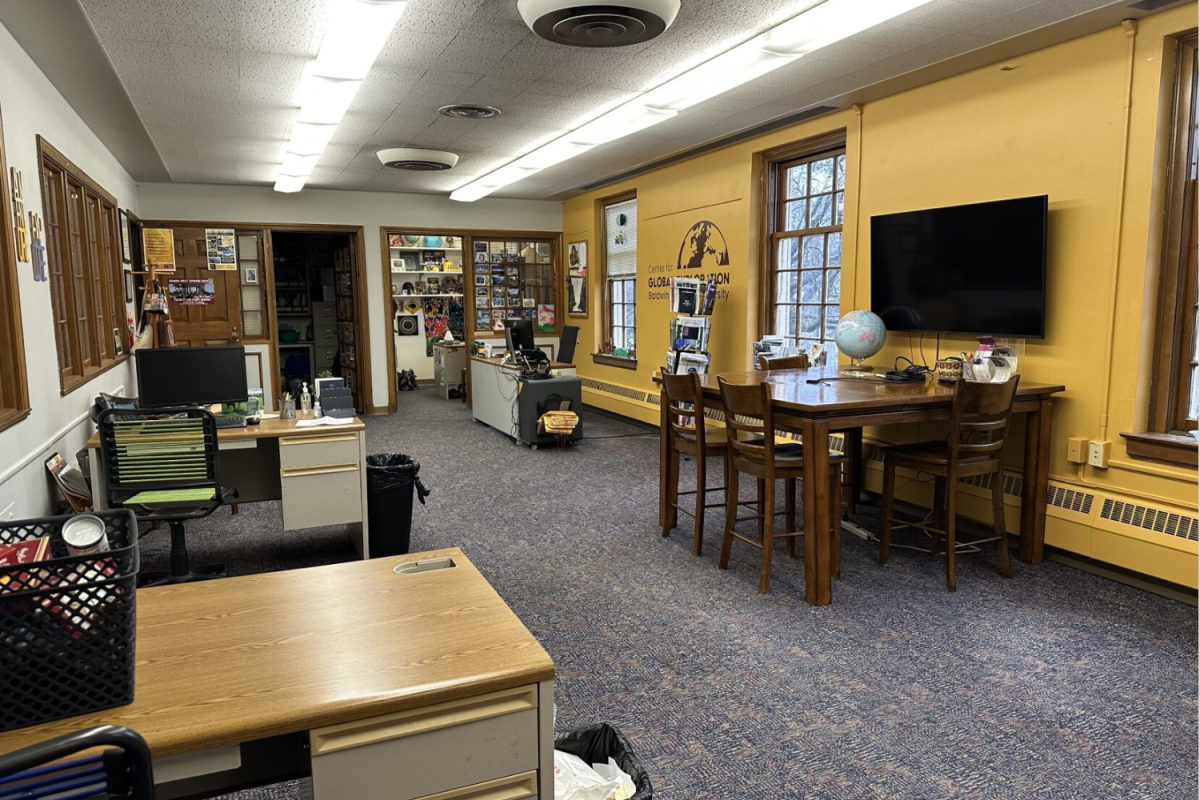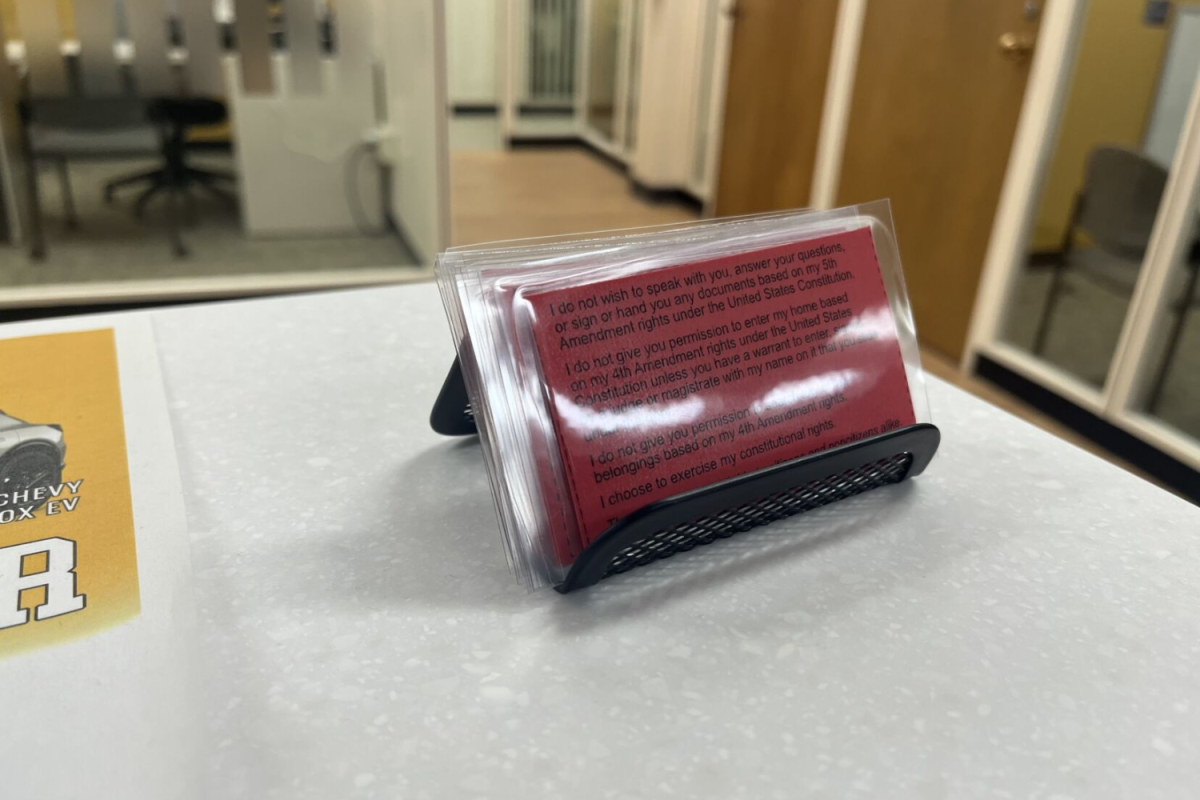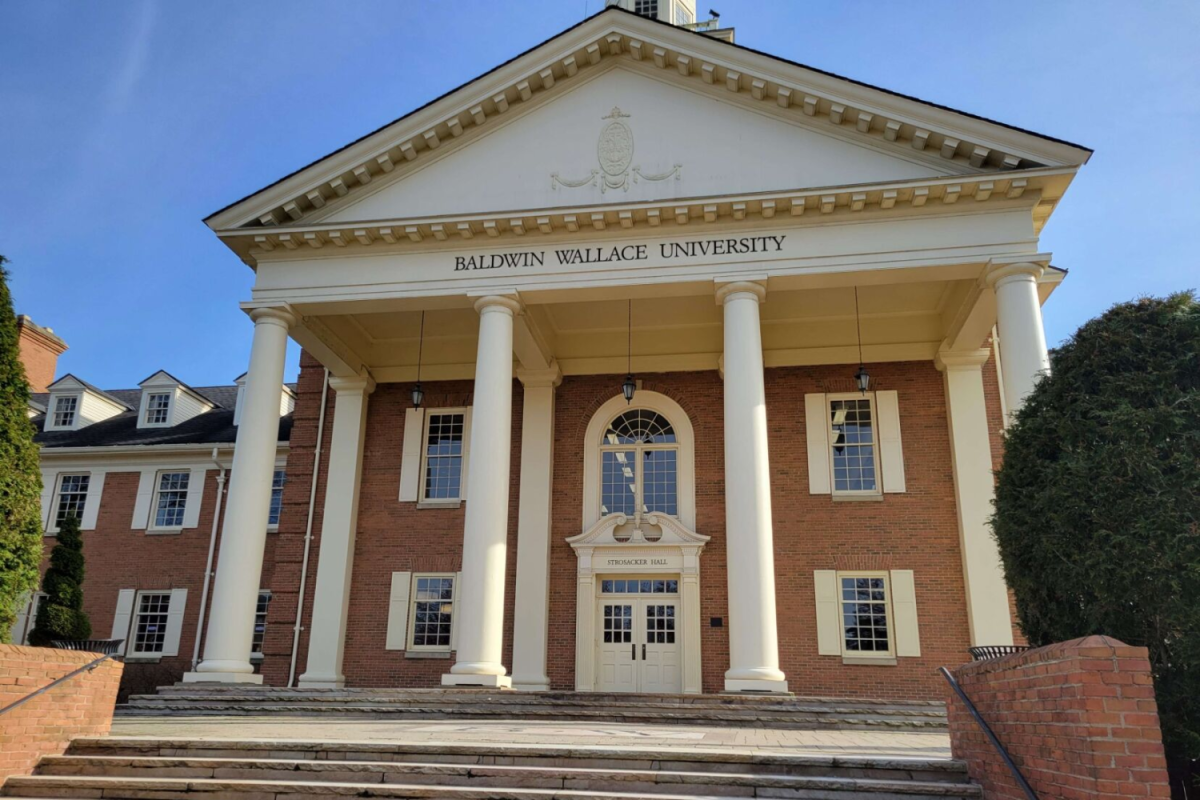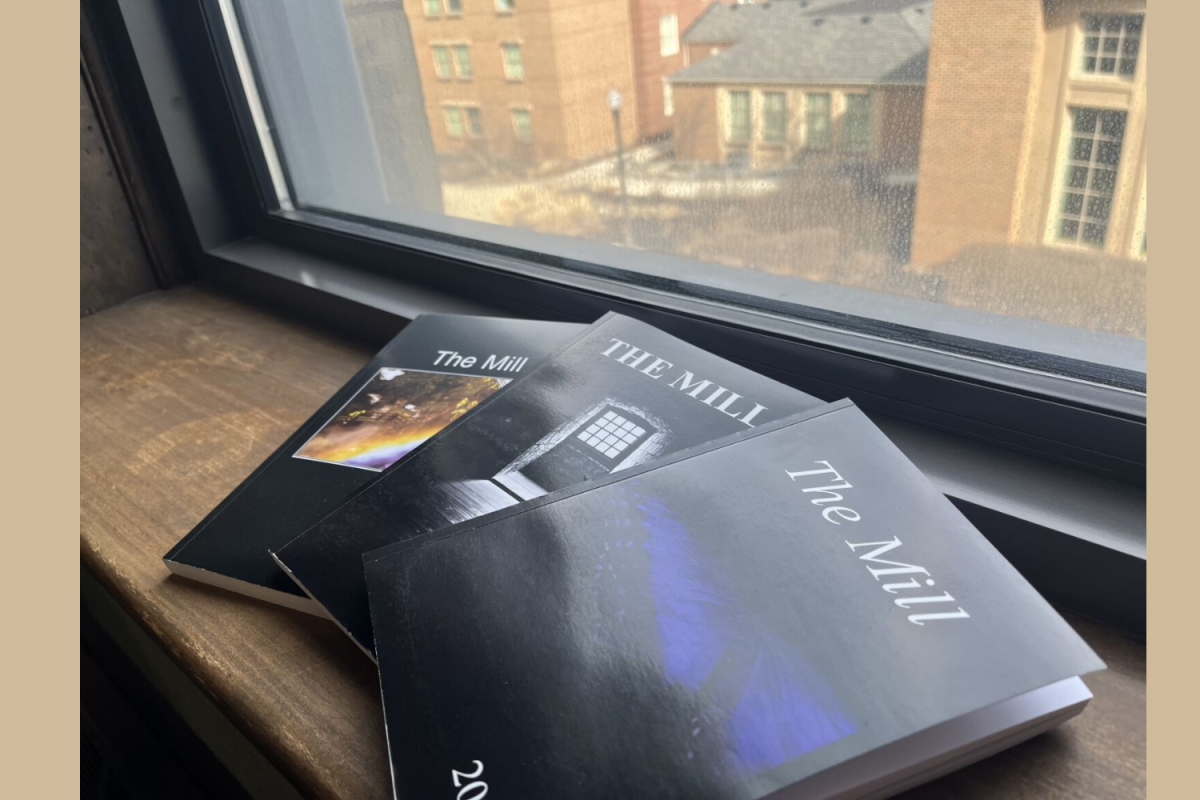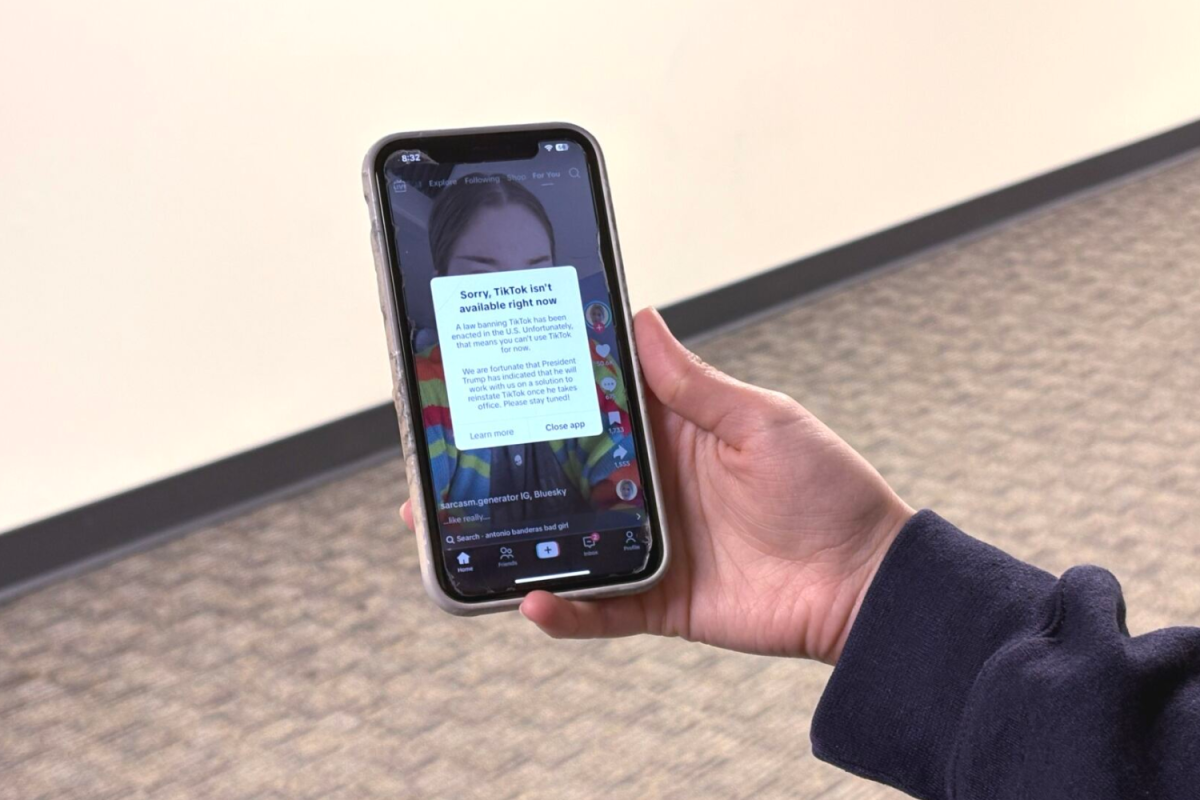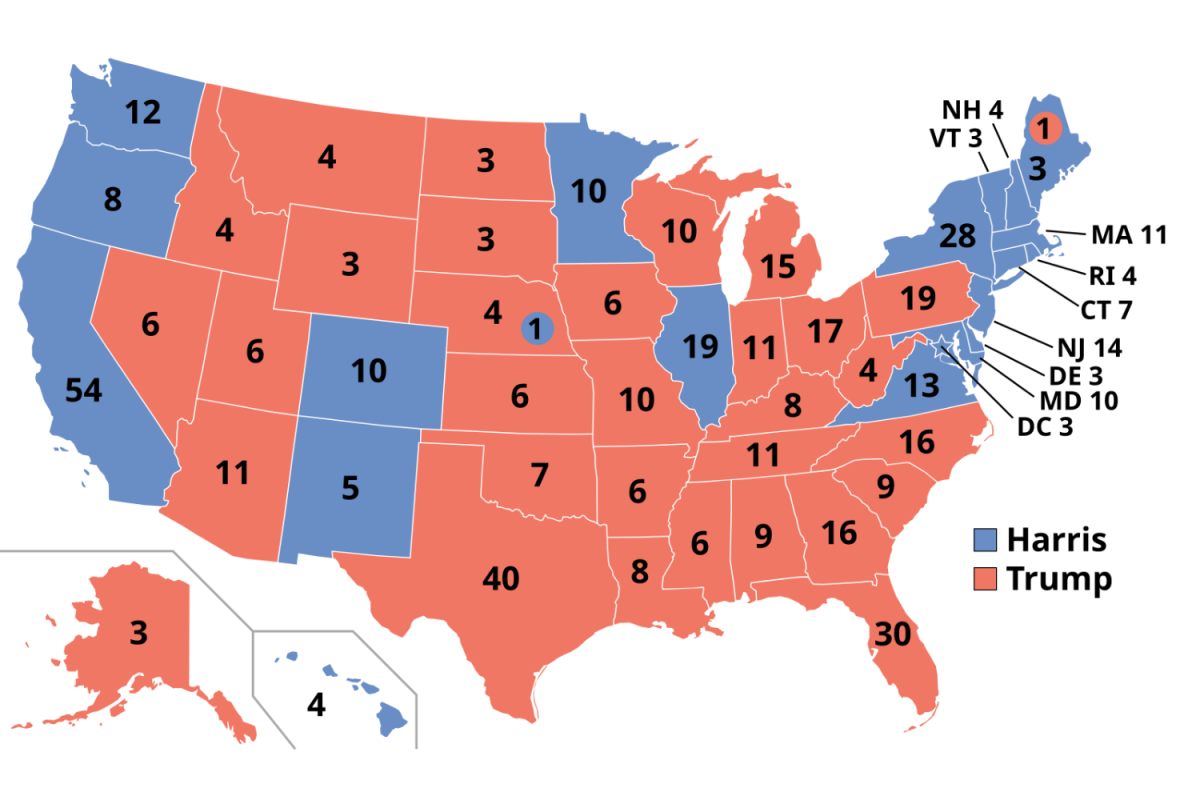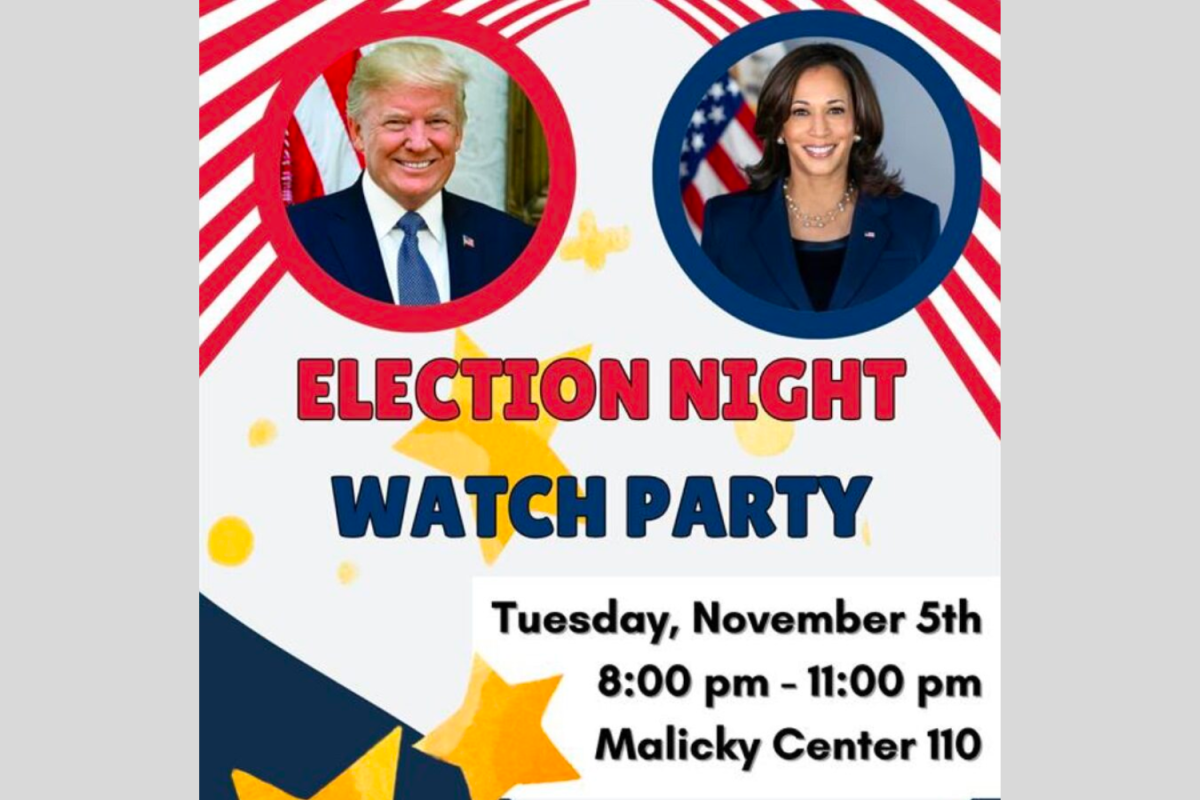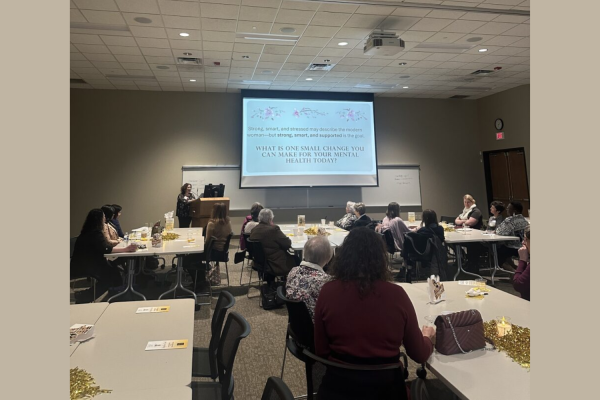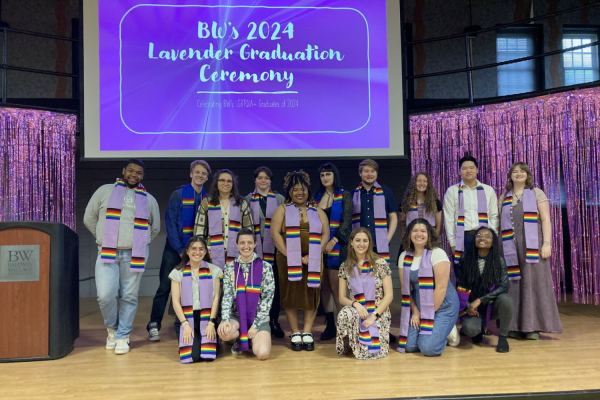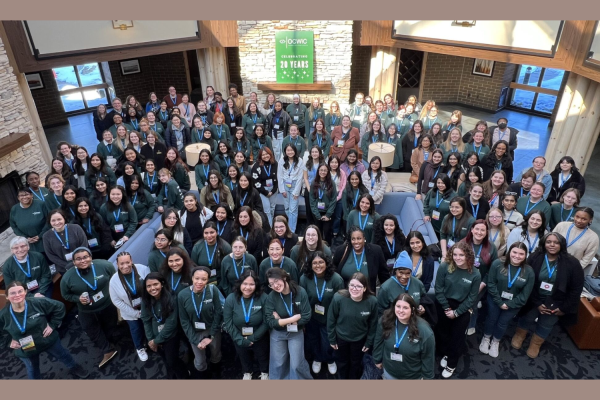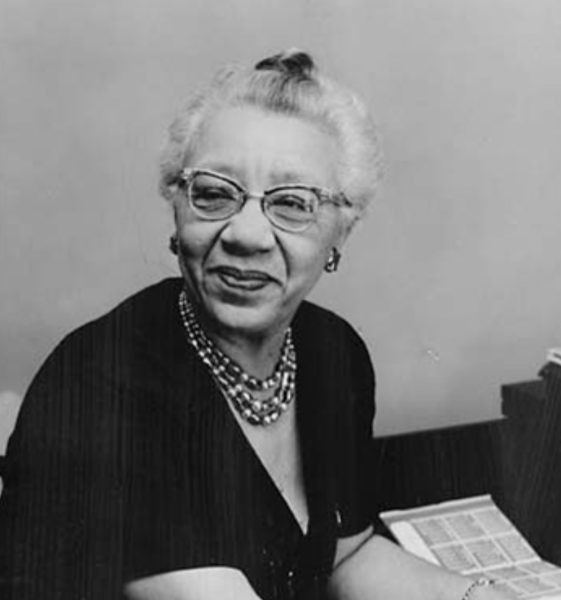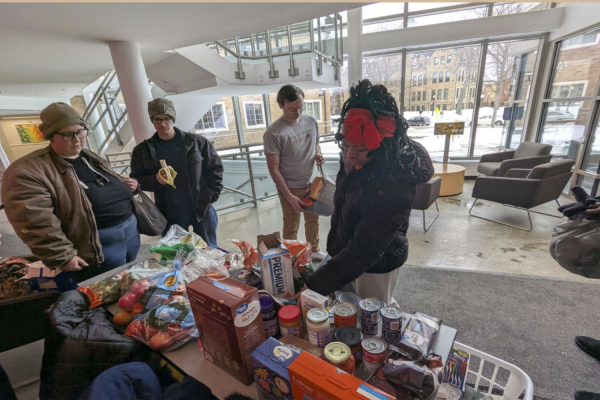A Day in the Life: Professor of marketing cultivates students’ brilliance to improve digital marketing for clients
Timothy Marshall, director of the Digital Marketing Clinic, said he creates opportunities for students to stand out in the job market while helping businesses and organizations compete in the marketplace.
Timothy Marshall, director of the Digital Marketing Center and assistant professor of marketing, welcomes students from all majors to the DMC, a full-service digital marketing agency located on the BW campus and staffed with students.
Marshall graduated with an undergraduate degree in public relations, communications and journalism before pursuing a master’s degree in integrated marketing. After completing his master’s degree, Marshall managed and supervised marketing teams, including interns and graduate students.
“When brands started to lean more toward digital or integrated digital more into their marketing plans, I became involved in that and, at some point maybe about 10 years after graduating from undergrad, … took on leadership roles,” Marshall said.
Before coming to teach at BW, Marshall worked in marketing as a consultant and trainer.
“I would talk to the C-suite [the executive level managers in a company] and explain why digital would be important to connect with different audiences, how it works and what we would need in order to really get to a place where the brand can communicate effectively,” Marshall said.
Marshall said he had the chance to be brought onto staff after he could guest lecture in some courses, which led to working with Julie Miller, an associate professor of communication arts and sciences.
“There was an opportunity to teach a class here at BW and to actually really shape a new course on social media marketing. That class is currently called CAS-316: Social Media Fundamentals. So, in 2013, I came here to teach that class [and] develop it,” Marshall said.
After three years of mostly consulting and teaching one class on campus, Marshall said he took the opportunity to “flip my life around” and became an educator full time while “consulting on the side.”
Marshall’s typical day looks different from most professors. He is a practitioner track faculty member, which means he is not required to have a doctorate to teach.
“I teach fewer courses than other faculty members, [and] the time I’m not teaching, I run the DMC. So, we call that a reduced teaching load,” Marshall said.
Most of the courses Marshall teaches revolve around digital marketing which he said allows him to meet prospective students for the program. Marshall also said that the lesson plans for his classes can inform how he does his job at the DMC and vice versa.
“When the program first launched [in 2016], it was still called the DMC, but the C just stood for clinic: Digital Marketing Clinic. And the only thing we did was that agency work and we’ve evolved to the Center because we [now] have multiple different ways of providing students with opportunities,” Marshall said.
Marshall said that the DMC caters to many businesses in the Berea area, but because the content the DMC deals with is mainly digital, it also takes on clients that could be from anywhere across the country.
In some cases, the students at the DMC will handle everything for a client, but other times they might work with other marketing firms and specialize in a specific task, Marshall said. He added that the DMC deals with single and repeat clients, and even competes against other marketing agencies.
The main service the DMC offers is consulting on a client’s project. When a client hires the DMC for this service, a team of three to five students is created from the 20 to 25 students that the DMC usually employs.
“I go build a team of three to five students, depending on the scope of work, who serve as the digital marketing agency for that client for a semester or longer,” Marshall said. “The students aren’t interns for our program, they work for BW, but they serve our client just like an advertising agency would.”
Part of the draw of the DMC comes from businesses wanting “to create opportunities for students,” Marshall said. “[The] businesses really like being able to give back to the community.”
“The most rewarding for me is … knowing that this program has contributed to a student’s success [both] while they’re still a BW student if it helps them be competitive for and attain other internships, and when they graduate if it helps them land that full time job,” Marshall said.
Marshall said that he struggles with always wanting more for the students and the Center while, at the same time, dealing with the fact that digital marketing is always changing. He said that new apps such as ChatGPT can have effects on the work that they do.
To solve the problem of an ever-evolving digital marketing landscape, Marshall said that the DMC partners with Google and HubSpot to provide training and resources to the students.
“So … in tomorrow’s class session, for example, [the topic] is search engine optimization. Those students are going to learn something that the students in the fall didn’t learn because what Google has done didn’t exist in Week Five in the fall,” Marshall said.
Andrew Blankenburg, a senior digital marketing major, has worked for the DMC for almost two years under Marshall. During Blankenburg’s first year he was paired with students to work on the semester projects, but after that his job changed.
“I expressed interest in a thing called paid media, which is essentially running social media paid campaigns across like Facebook and Instagram and things of that nature,” Blankenburg said.
Because Blankenburg and one other student were interested in paid media, Marshall created “a new sector” in the DMC called the paid media specialist.
“I’m … like a free agent so to say. I kind of just come in and they consult me on exactly what they need [regarding paid advertising]. … It’s not really semester based as it is more need based,” Blankenburg said.
Blankenburg said that Marshall is his favorite person at the school since he will work hard to help students with various opportunities.
“He’s helped me with just about anything that I can think of from networking to career advice. I mean, you name it, Tim’s helped me with it,” Blankenburg said.
Molly Oswald, a senior digital marketing and public relations double major, has worked for the DMC almost two years as well.
Unlike Blankenburg, she continues to work in the marketing teams on the semester projects. Oswald said she finds that format beneficial because she said she can try out a variety of clients.
Oswald described Marshall as a “helpful guiding hand” when working on projects for clients.
“He’ll throw in his opinions here and there, but he really leaves it up to the team to make decisions and decide what we want to do,” said Oswald.
Oswald worked with Marshall outside of the DMC when he was her faculty coordinator for an internship she had. She also had him as a professor in the past.
“I feel like I’ve gained a lot of experience from his classes. And he never tries to like, push anything on you,” Oswald said. “He just wants to help you become prepared for the professional world, working in a professional setting. And I think he does a really great job of that.”
The Exponent is looking for financial contributions to support our staff and our newsroom in producing high-quality, well-reported and accurate journalism. Thank you for taking the time to consider supporting our student journalists.

